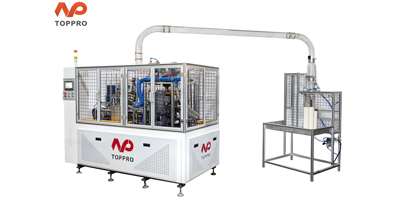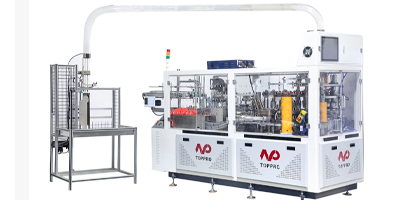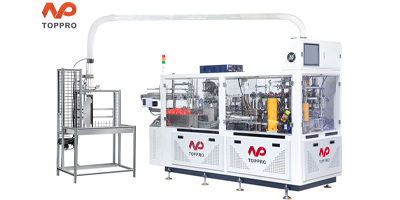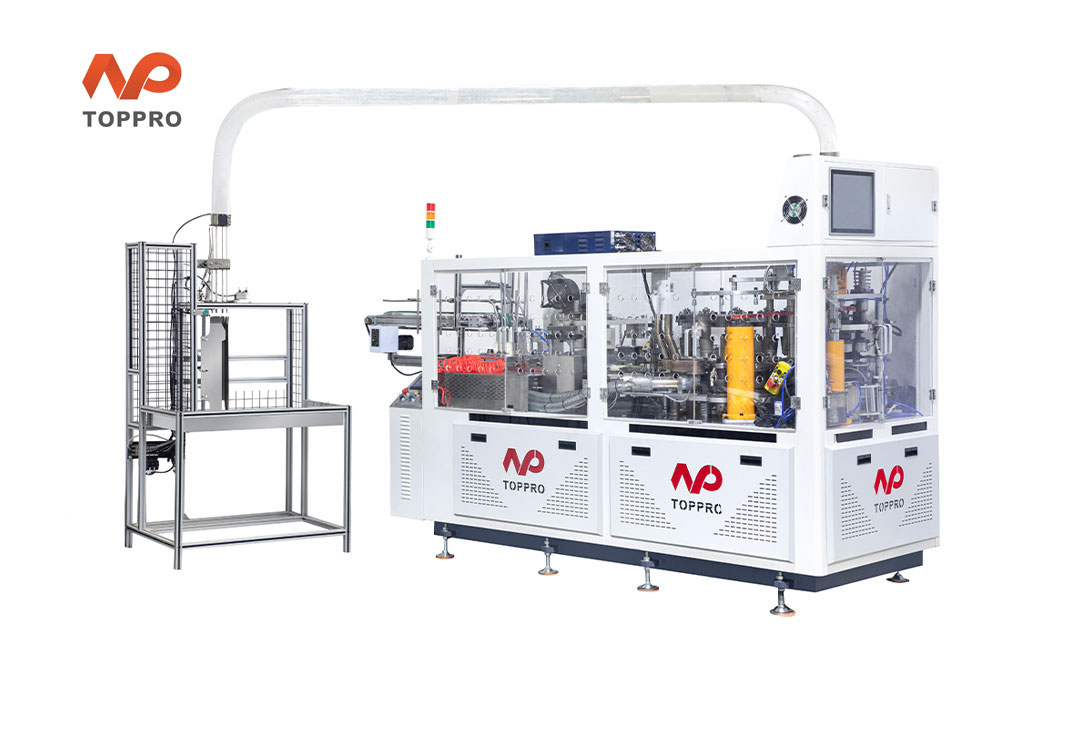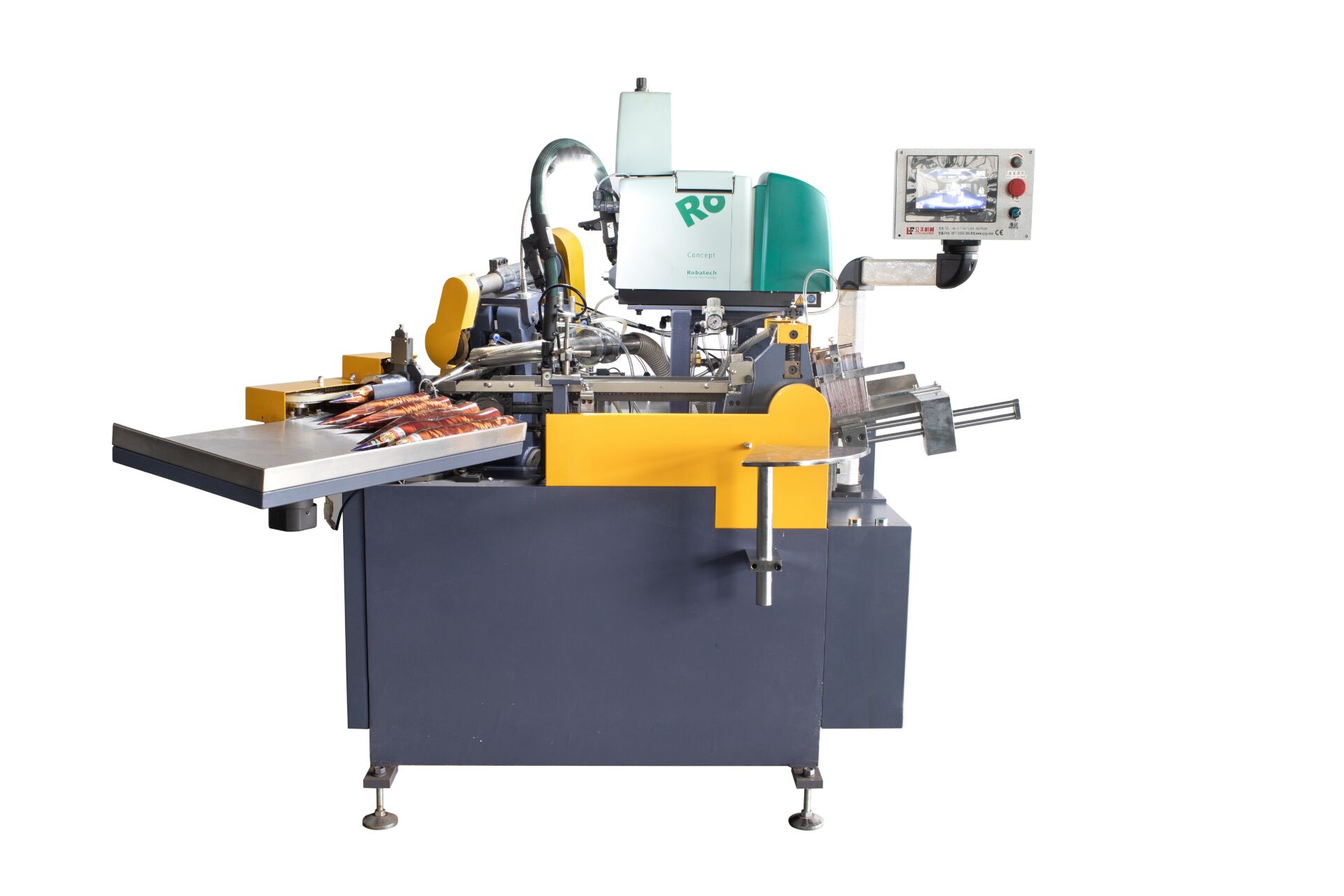The global paper cup industry has witnessed steady growth in recent years, driven by factors like the booming food delivery sector, increasing consumer preference for convenient disposable packaging, and a shift toward more sustainable alternatives to plastic. For entrepreneurs and businesses looking to enter or expand in this space, understanding the nuances of paper cup manufacturing—from market demand to equipment selection—is critical. This guide breaks down key insights, strategies, and how partnering with TOPPRO (a leading paper cup machine manufacturer) can streamline your production and boost competitiveness.
Demand Analysis for the Paper Cup Business
Before launching a paper cup manufacturing venture, it’s essential to gauge market demand to align your production with customer needs. Here’s a breakdown of current demand drivers and opportunities:
End-User Segments: The largest demand comes from B2B clients, including quick-service restaurants, coffee chains, convenience stores, offices, and event organizers. For example, a local coffee shop may require 5,000–10,000 small (4–8oz) paper cups monthly, while a national QSR chain could need millions of medium (12–16oz) cups for takeout.
Product Trends: There’s a growing demand for specialized paper cups, such as heat-resistant cups for hot beverages (tea, coffee), leak-proof cups for cold drinks (smoothies, iced coffee), and customizable cups (with brand logos or seasonal designs) for marketing purposes.
Sustainability Push: Consumers and regulators are increasingly prioritizing eco-friendly options. This has boosted demand for cups made with PLA-coated paper (biodegradable) or recycled paper, alongside traditional PE-coated paper.
Regional Variations: Urban areas with high foot traffic (cities, business districts) have higher demand for small, on-the-go cups, while suburban or rural areas may favor larger cups for family use.
6 Key Insights Uncovered About Paper Cup Manufacturing
Success in paper cup manufacturing hinges on mastering six core areas: market research, raw materials, machinery, investment, licensing, and marketing. Below is a detailed breakdown of each.
1. Market Research
Market research helps you avoid overproduction, identify gaps, and tailor your offerings to target customers. Key steps include:
Define Your Niche: Decide whether to focus on a specific segment (e.g., premium coffee cups for cafes, bulk cups for offices) or serve multiple markets. For example, if your region has a thriving craft coffee scene, specializing in 8–12oz double-walled heat-resistant cups could be profitable.
Analyze Competitors: Study local and regional manufacturers—what cup sizes do they offer? What’s their pricing? Do they provide customization? Identify gaps (e.g., no one offers PLA-coated cups locally) to differentiate your business.
Understand Regulatory Trends: Research local laws on food-contact materials (e.g., FDA standards in the U.S., EU 10/2011) and environmental regulations (e.g., bans on non-biodegradable coatings) to ensure compliance from day one.
2. Raw Materials Required
Paper cups rely on food-safe, durable materials—choosing the right raw materials directly impacts product quality and customer trust.
Primary Material: Coated Paper: The most common material is PE-coated paper (polyethylene-coated), which prevents leaks and withstands hot/cold temperatures. For eco-friendly lines, PLA-coated paper (polylactic acid, derived from corn starch) is a biodegradable alternative.
Material Specifications:
Weight: Most machines (including TOPPRO’s) handle 170–350gsm paper. Lighter paper (170–190gsm) works for small cold-drink cups, while heavier paper (250–350gsm) is ideal for large hot-drink cups (e.g., 16oz coffee cups).
Coat Type: Single PE (for cold drinks) or double PE (for hot drinks, added insulation).
Sourcing Tips: Partner with reputable suppliers to ensure consistent quality and avoid shortages. Negotiate long-term contracts to mitigate price fluctuations (a major cost driver in the industry).
3. Machinery and Equipment
Investing in reliable, efficient machinery is non-negotiable—subpar equipment leads to low output, high waste, and frequent downtime. TOPPRO’s paper cup machines stand out in the market, offering a range of models to suit every production scale and need.
Key Factors to Consider When Choosing Machinery
- Speed (production capacity): Matching machine speed to your target output.
- Cup size compatibility: Flexibility to produce multiple cup sizes (4–18oz is standard).
- Automation level: Reducing manual labor and errors.
- Durability: Minimizing maintenance costs.
TOPPRO’s Standout Paper cup machine Technological Advantages
Fully Automatic Intelligent System: Reduces manual intervention—from paper feeding to cup counting/collection. The auto-counting table (with customized settings) eliminates the need for manual sorting, cutting labor costs by 30–50%.
Servo Tracking System: Precisely controls bottom paper feeding, reducing raw material waste by up to 15% (a critical cost saver for high-volume production).
Oil Poured Lubrication System: Ensures equipment longevity and stability—TOPPRO machines have an average lifespan of 8–10 years (vs. 5–6 years for competitors) with minimal downtime.
Ultrasonic Sealing: Creates leak-proof, strong seals (superior to traditional heating) that withstand hot liquids (up to 100°C) without warping. This boosts product quality and customer satisfaction.
PLC + Human-Machine Interface (HMI): Intuitive controls make operation simple—even for new staff.
4. Investment and Profitability
Paper cup manufacturing is a relatively low-barrier business, but understanding costs and revenue is key to sustainable profitability.
Initial Investment Breakdown
Machinery Cost: $20,000–$80,000 (depending on model: LF-70 for startups ~$20k; GZB-600 for industrial use ~$80k).
Facility Cost: 500–1,000 sq. ft. for small operations (rental ~$1,500–$3,000/month in urban areas).
Raw Material Inventory: $5,000–$10,000 (initial stock of PE/PLA-coated paper).
Licensing & Permits: $1,000–$5,000 (varies by region).
Total Initial Investment: $27,500–$99,000.
Profitability Analysis
Revenue Potential: A mid-sized machine like LF-110 can produce ~144,000 cups/day (8-hour shift). At $0.02/cup (wholesale price), daily revenue is $2,880, or ~$86,400/month.
Operating Costs: Raw materials (~50% of revenue: $43,200/month), labor (~10%: $8,640), rent (~3%: $2,592), maintenance (~2%: $1,728). Total monthly costs: ~$56,160.
Monthly Profit: ~$30,240. Return on Investment (ROI): 6–12 months for mid-sized machines (faster with high-demand products like custom cups).
5. Licensing and Permits
Since paper cups are food-contact products, compliance with local and national regulations is mandatory. Key permits include:
Business License: Basic registration for operating a manufacturing business.
Food Contact Material Certification: Ensures your cups meet safety standards (e.g., FDA 21 CFR Part 177 in the U.S., China’s GB 4806.8).
Environmental Permit: Required for waste disposal (e.g., paper scraps) and emissions (if your facility uses heating systems).
Quality Management Certification: Optional but recommended (e.g., ISO 9001) to build trust with B2B clients.
6. Marketing and Distribution
A strong marketing and distribution strategy ensures your cups reach the right buyers. Here are top tactics:
Target B2B Clients: Focus on high-volume buyers like coffee chains (e.g., Starbucks, local cafes), fast-food restaurants, convenience stores (7-Eleven), and corporate offices. Offer bulk discounts (e.g., 5% off orders over 100,000 cups) to encourage repeat business.
Customization Services: Leverage TOPPRO’s customizable machine settings to offer branded cups (e.g., printing a café’s logo). Custom cups command a 15–20% higher price than plain cups and build long-term client loyalty.
Online Presence: Create a website showcasing your products (e.g., cup samples, material options) and TOPPRO’s machinery (to highlight quality). Use social media (LinkedIn for B2B, Instagram for visual samples) to engage clients.
After-Sales Support: Offer timely delivery and responsive customer service (e.g., replacing defective cups). Pair this with TOPPRO’s machine maintenance support to ensure consistent production and avoid delays for your clients.
Enhance Your Paper Cup Production by Partnering with TOPPRO
TOPPRO isn’t just a paper cup machinery supplier—it’s a long-term partner for your paper cup business. Here’s what sets their collaboration apart:
Tailored Solution Matching: TOPPRO’s team assesses your production goals (volume, cup types, budget) and recommends the perfect machine model (e.g., LF-70 for startups, GZB-600 for industrial scale).
Comprehensive Training: They provide on-site training for your staff to operate, maintain, and troubleshoot the paper cup machine—ensuring you maximize efficiency from day one.
Global Support: TOPPRO offers 24/7 technical support and quick access to spare parts (delivered within 3–5 days for most regions) to minimize downtime.
Scalability: As your business grows, you can upgrade to higher-speed models (e.g., from LF-90 to GZB-600) without overhauling your production setup—TOPPRO paper cup machines are designed for seamless integration.
Eco-Friendly Compatibility: All TOPPRO models work with PLA-coated paper, allowing you to tap into the fast-growing sustainable packaging market.
Conclusion
The paper cup manufacturing business offers significant potential for growth—driven by convenience and sustainability trends. To succeed, focus on understanding market demand, sourcing quality materials, investing in reliable machinery (like TOPPRO’s), and building strong B2B relationships. With TOPPRO’s advanced, customizable machines and support, you can streamline production, reduce costs, and stand out in a competitive market. Whether you’re a startup or an established manufacturer looking to expand, partnering with TOPPRO is the first step toward building a profitable, sustainable paper cup business.





